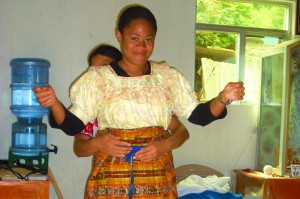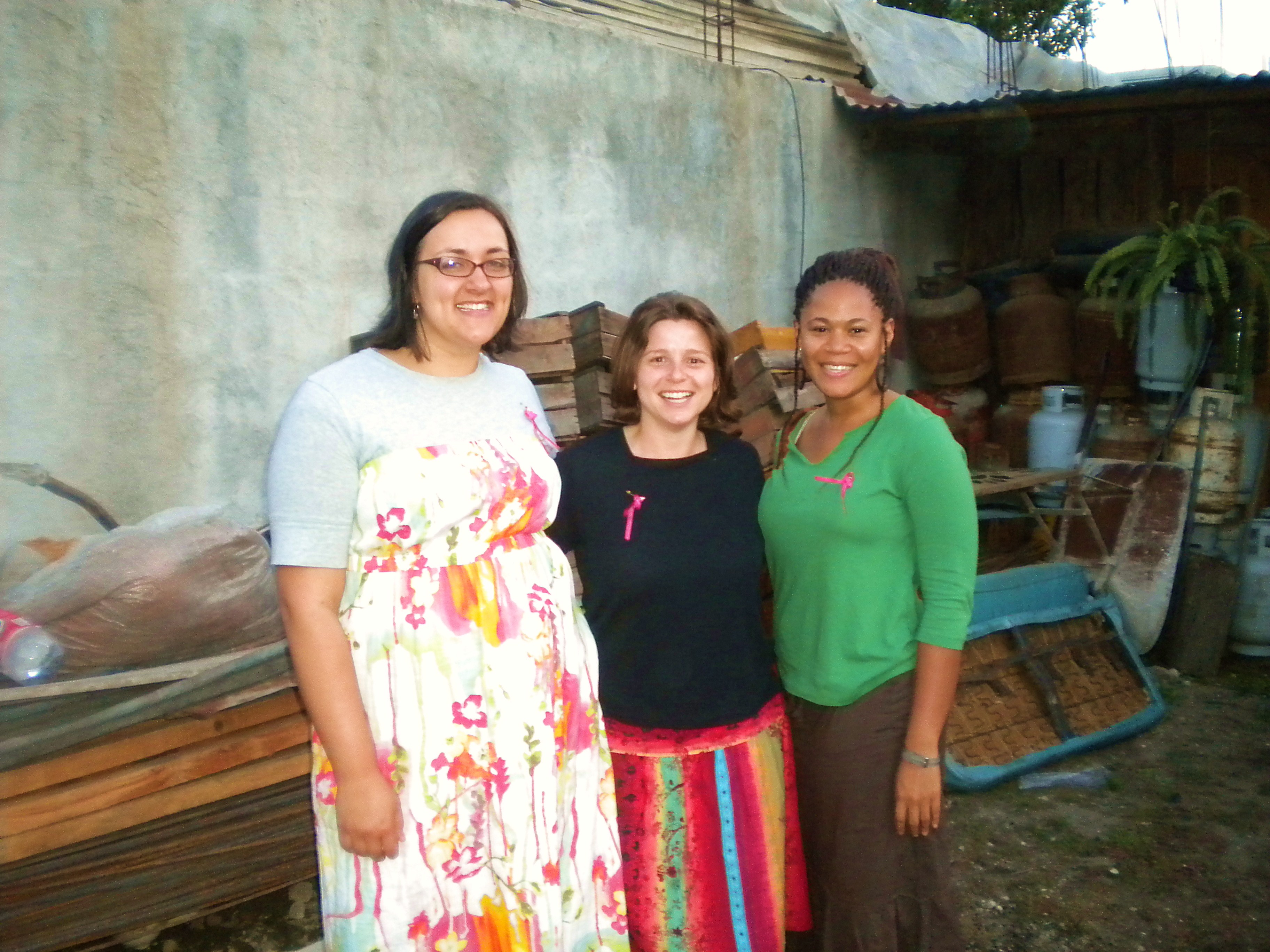- Got an idea for an article?
- savvyincpr@gmail.com
Lifestyle
[box_light]In 2009, Marlaine Woodfork graduated from Tougaloo College and faced the daunting question that thousands of college graduates face every year…“what do I do now?” For Woodfork, whatever she decided had to have significant meaning. Money was important, but for her living a purpose filled life was equally as important. After much consideration, Woodfork decided that the Peace Corps was the right career choice for her. It’s a 27-month dedication that has been life changing for the Natchez, Mississippi native. Not only has it afforded her the opportunity to give back and have an impact on a developing country, but has opened her eyes to internal strengths that she never knew she had.[/box_light]
Savvy: You don’t find many young people, especially recent college graduates, who want to work/volunteer with an organization such as the Peace Corps. What made you decide that this was the career choice for you?
Woodfork: There are so many reasons I decided to work abroad. I’ve always felt like my career choices would allow me to work internationally. Also, working for the Peace Corps makes me more marketable in the professional arena. I’ve been able to learn a different language and explore a different culture. I love the way Peace Corps volunteers are set up in their communities. We eat, work, and live with people of a different culture day to day and in doing so, we become more involved in their lives and we see what other organizations do not see and do what other foreigners cannot.
More importantly, I wanted to help a less developed country. In my life, I have always been more of a giver then a receiver.
Savvy: It’s just you and your younger sister, how did your family feel about you joining the Peace Corps and moving to Guatemala?
Woodfork: My family really didn’t say much about me leaving. I feel my family has always known that I would live somewhere other than Natchez or even America. They never asked me anything. They just helped me get the things I needed to make my adventure possible. However, people did ask my family how they felt about me leaving, and they would just say, “She knows what she wants and we trust her to make the right decisions for her.” However, once I made it here they did ask more questions. I was glad that they asked more questions after I made it here to Guatemala because I did not have answers prior too.
Savvy: Why Guatemala? Did you have any input in where you would be re-located or did the Peace Corps decide that for you?
Woodfork: The Peace Corps did an assessment to determine what area was best for me and where I was most needed. Once I finished the application on the Peace Corps website, I was placed with a recruiter for the Mississippi area who decided Central America was right for me.
Savvy: The work of the Peace Corps is commonly related to social and economic development. Volunteers work with governments, schools, non-profit organizations, non-government organizations, and entrepreneurs in education, hunger, business, information technology, agriculture and the environment. What is it that you do?
Woodfork: My program is called Healthy Homes. I teach basic health skills, but my main focus is preventive health. For example, the number one cause of death of children in Guatemala is diarrhea. I know that sounds strange and may even be a little hard for Americans to believe, but it’s true. Therefore, I’m responsible for teaching what diarrhea is, its’ symptoms, how it effects the body and how to prevent it.
Savvy: Who are you teaching these health skills to?
Woodfork: As a Healthy Homes volunteer, I work with the mothers of the homes. The ages range from 16 and up. I also work in the nearby schools with ages ranging from 5 to 15.
Savvy: You’re from Natchez, Mississippi. Attended Tougaloo College for undergraduate studies then moved to Guatemala. That is a big move. Did you experience culture shock and how did you deal with it?
Woodfork:The culture shock was greater than I expected. This was the first time in my life that I had ever been around or lived with other ethnicities. Initially I didn’t know how to present myself. However, as time went on, I realized that even though we all come from different backgrounds, we are here with similar goals in mind; to give back, help those in need and find out more about ourselves. I then realized we are one in the same and the only difference between us is color, which should not be a factor.
[box_light]
Savvy: I’m not sure that any day can be typical, but if you could explain what a typical day is like for you what would it be?
Woodfork: Your right, here things rarely go as planned. I have learned how to adjust and be more innovative in my planning. My day usually starts around 5:30 a.m. I run the interstate for an hour. I have to get back to my apartment before the water is turned off. I then walk to my job, which takes about 10-minutes. I’m usually at my job by 8 a.m. Where I work is what America would call a health department. It has the same functions as a health department and is funded by the government, except it’s open 24 hours a day, 7 days a week. I either have my health talks in the morning or evening; depending on what time is best for the groups. Depending on the day, the ambulance may take me and my translator to my meetings, while other times I have to walk 30 minutes to 2 hours just to get to the meeting site. I walk home for lunch to cook and prepare my food. I’m off of work by 4:30 every day. It’s not common to be outside after dark. Everyone is in their homes by 7:30. Lights are off in my apartment around 7:00 every night.
[/box_light]
Savvy: How would you describe your personality before you decided to work abroad?
Woodfork: Before I joined the Peace Corps I was quieter, reserved and easier going than I am now. I preferred to be by myself… I needed a lot more space from others. Also, I was a bit more dependent on what others thought of me and I was not as quick to take risk. I believed in the saying, “There is a time and place for everything”, but as I look back on my life I feel as though at times I have used this quote as a crutch because I was afraid of my own insecurities.
Now, I’m more outgoing, and demanding of what I want and need from others. I have learned to be more open without being afraid of getting hurt. Now, I am more intuitive and I love taking risks. I think this happened because I am allowed to be different here. Here, I am the foreigner, therefore, I have the right to be different and I had to learn to use that to my advantage. With a smile on my face, I am allowed to talk about taboo subjects or I am allowed to ask difficult questions. I feel that this side of me has always existed, but I just needed the environment and chance to nurture it and then make it known.
Savvy: Guatemala has the lowest literacy rate in Central America. What is being done to change that?
Woodfork: The illiteracy rate here in Guatemala is at an alarming high of 50 percent. Schools do not have enough money to pay for textbooks, which is why the children are not able to read. Unfortunately, my job is to educate about developing basic health preventive skills, therefore, I cannot truly take part in this dilemma. However, there are organizations here in Guatemala whose main goal is to educate in literacy.
Savvy: What is one of the biggest issues facing the people in Guatemala?
Woodfork: Some of the biggest problems that affect Guatemalans are in the home. Most of the families I work with have dirt floors and cook on open floors three times a day. Many of the families do not have a latrine or out house. These types of environments breed infections. In my second year, I plan to help build stoves and cement floors for the most needy in my communities. This will take a lot of hard of work and dedication from both me and my Guatemalan families as well.
Savvy: How has your experience been rewarding?
Woodfork: My time here in Guatemala has put me through experiences that I would not have endured in America. I have seen situations I never thought still existed. I have a better grasp on how the world works and how people think. I realize how insignificant my mere existence means in this world if I only think of self. My thrill and zest for life has been rebirth into a creature not before known to me…that I truly love.



